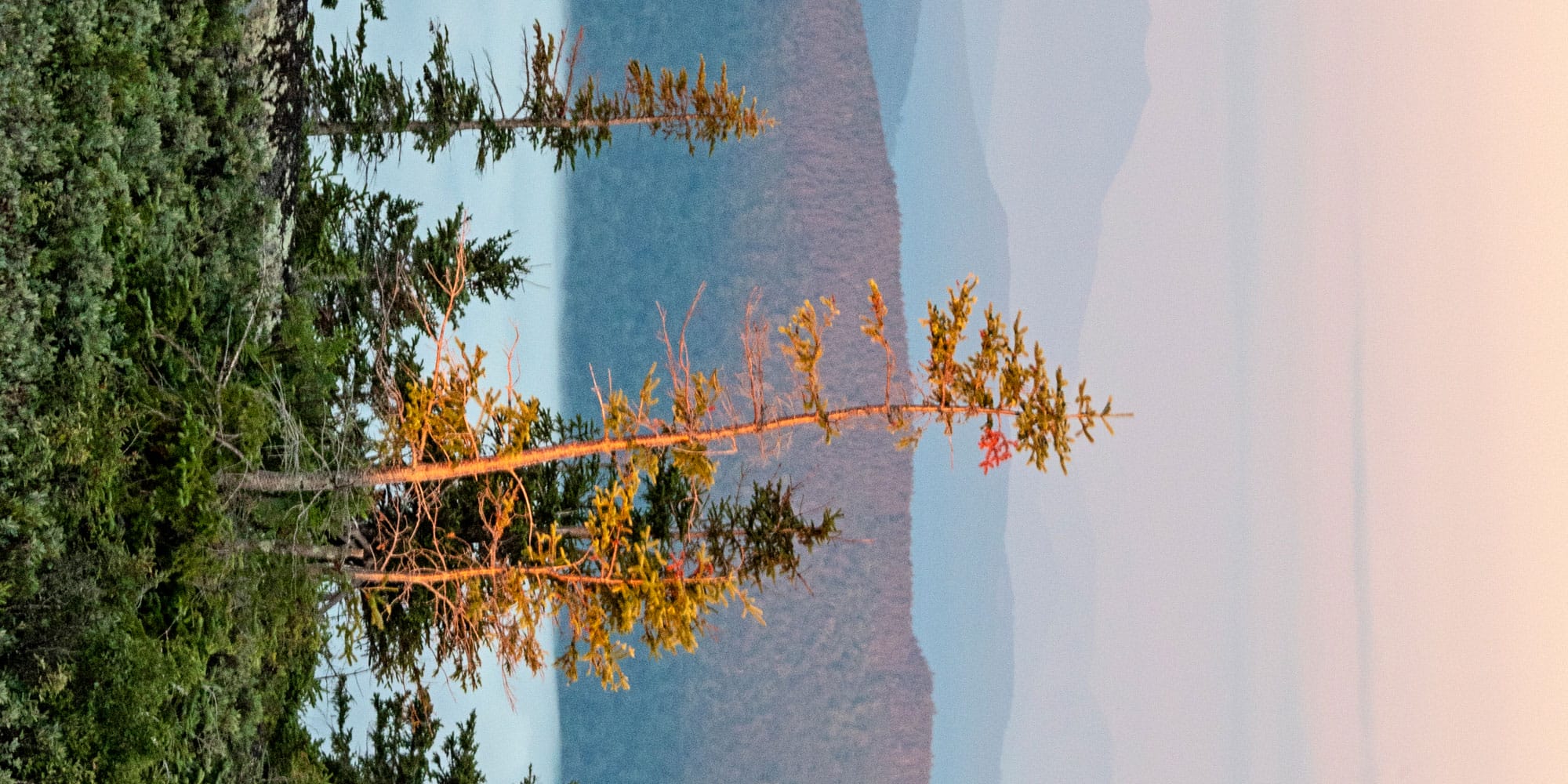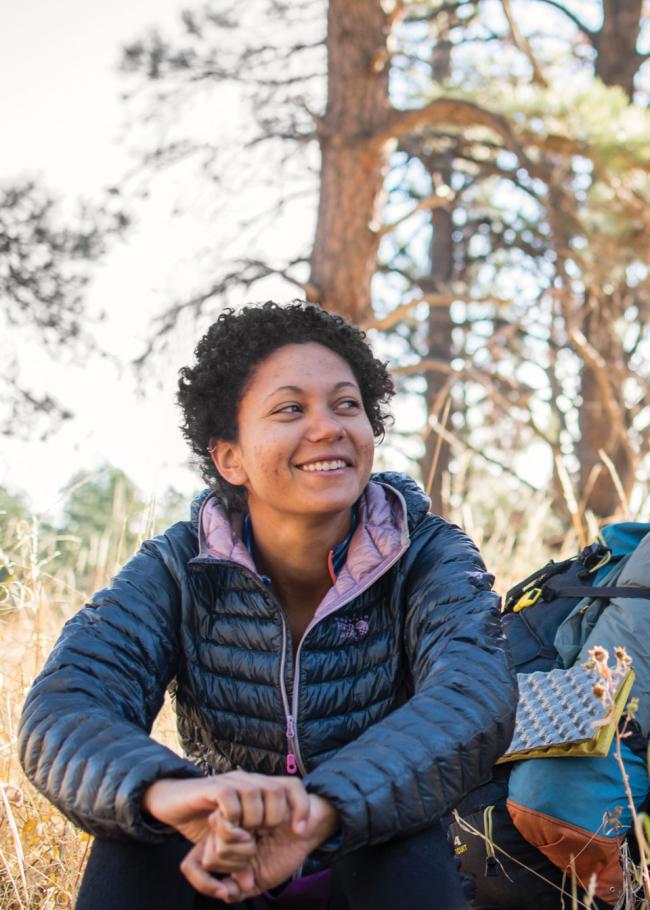While the outdoors is far from the apolitical space the culture has pushed for so long, Amanda believes in the power nature provides. “As a Black queer woman living in the U.S., it’s taught me that nature doesn’t discriminate in the ways that people do. We don’t have to be like this.” What she’s gained from hiking, along with her work with organizations like the Leave No Trace Center for Outdoor Ethics and Camber Outdoors, has given her an advantage for translating deep experiences and passing on knowledge into her work with youth through Big City Mountaineers.
I asked her how outdoor culture, land management agencies, and parks can do better for youth. For starters, she urges decision-makers to just take them seriously. “Young people rise to the occasion when they’re asked to,” she says. “Not only is there a lot that young people can learn from older people, but there’s a lot that older people can learn from youth.”
COVID-19 has made it harder to support youth in the outdoors for the time being. Big City Mountaineers had to cancel their trips this summer. But they’re using this time to look inward. “We’ve committed the organization to being antiracist, which is a lot of work,” Jameson explains. “We’re not always going to get it right. It’s going to be three steps forward, four steps back.”
Jameson also says it’s past time for people in power to choose who they’re really serving: “If you are trying to cater to both people with marginalized identities and people who, whether knowingly or unknowingly, are a part of systems of oppression who aren’t actively working to break down those systems of oppression, what you’re going to be left with is the latter group,” she says. “The people that are oppressing people. The former group should not be expected to tolerate their own oppression.”
Read Amanda’s writing at browngirlonthenst.com and follower her on Instagram @browngirlonthenst.
Read more conversations in this series here.


